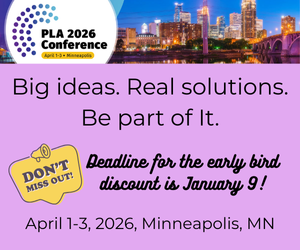Dispatches from ALA 2014: Ideas and Practices in STEM/STEAM Learning
Our guest blogger Katie Lewis was a volunteer for PLA as part of the ALA Student to Staff program at the 2014 ALA Annual Conference in Las Vegas. Katie Lewis will complete an MLIS degree from Drexel University in September 2014. She recently moved to Boston, and is passionate about information, outreach, and service. Below is her synopsis of the PLA sponsored program – Ideas and Practices in STEM/STEAM Learning.
As a Student to Staff volunteer with PLA for the 2014 ALA Annual Conference, I was given the task of assisting for several programs. Each of the programs I attended were unique, but all sought to continue a conversation about public library service—how to improve programs, increase outreach to patrons and support development.
One program I found interesting discussed how federal grant opportunities can support STEM/STEAM learning in public libraries. Attendees had the chance to consider how resources and ideas can boost a peer culture that fosters mentorship and leadership in the youth and teen population. Applying for federal grants require time and patience but can be an excellent source for increasing resources for developing STEM learning in your library.
Paul Jennings represented the National Science Foundation, and Sandra Toro, Senior Grants Management Specialist for Institute of Museum and Library Services, gave a basic overview of grants available to libraries for STEM learning. She notes that it may be necessary for organizations to apply more than once for grants—even two or three times. Her advice? Do your research: look at what other libraries are doing, how they have received funding, and be strategic. Think about how your library can be innovative for your community.
Two teen services librarians from Carnegie Library of Pittsburgh (David Yake and Simon Rafferty) shared how they utilized federal grants to improve services for their patrons. Their results showcased hands-on learning, including investments in a new teen space, and purchases for Open Lab STEM learning like MaKey MaKey kits, a sewing machine, and bicycle repair tools to supplement donated parts. These librarians also contributed to new community partnerships in their city, including a summer digital badge program for youth in which twenty organizations are taking part.
It is exciting to think about the possibilities about how federal grants can support the expansion of STEM and STEAM programming in public libraries. While not all public libraries may not be able to successfully apply for and receive federal grants, such as those offered by IMLS and NSF, this program indicates the benefit of sharing opportunities and success stories about library programming. Carnegie Library of Pittsburgh offers robust workshop programs and Open Lab time for you youth and teens which promotes the library to a wider patron community. As a library student on the cusp of graduation, I look forward to discovering (and sharing) more ideas that spark community participation.










